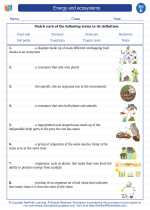Inflammation: An Overview
Inflammation is the body's natural response to injury, infection, or irritation. It is a complex biological process that involves the immune system, blood vessels, and various signaling molecules.
Causes of Inflammation
Inflammation can be caused by various factors, including:
- Infection
- Injury
- Physical trauma
- Chemical irritants
- Allergens
- Autoimmune disorders
Signs and Symptoms of Inflammation
Common signs and symptoms of inflammation include:
- Redness
- Swelling
- Heat
- Pain
- Loss of function in the affected area
Types of Inflammation
There are two main types of inflammation:
- Acute inflammation: This type of inflammation occurs rapidly and is typically resolved within a few days. It is a short-term response to injury or infection.
- Chronic inflammation: Chronic inflammation is a long-term response that can last for weeks, months, or even years. It is often associated with conditions such as arthritis, asthma, and autoimmune disorders.
Study Guide for Inflammation
Key Concepts
- What is inflammation?
- What are the causes of inflammation?
- What are the signs and symptoms of inflammation?
- What are the main types of inflammation?
Review Questions
- What is the body's natural response to injury, infection, or irritation?
- List three causes of inflammation.
- What are the common signs and symptoms of inflammation?
- What is the difference between acute inflammation and chronic inflammation?
Studying inflammation is crucial for understanding various health conditions and the body's immune response. It is important to grasp the causes, types, and symptoms of inflammation to appreciate its role in the human body.
.◂Science Worksheets and Study Guides Fifth Grade. Energy and ecosystems
Study Guide Energy and ecosystems
Energy and ecosystems  Worksheet/Answer key
Worksheet/Answer key Energy and ecosystems
Energy and ecosystems  Worksheet/Answer key
Worksheet/Answer key Energy and ecosystems
Energy and ecosystems  Worksheet/Answer key
Worksheet/Answer key Energy and ecosystems
Energy and ecosystems  Vocabulary/Answer key
Vocabulary/Answer key Energy and ecosystems
Energy and ecosystems  Vocabulary/Answer key
Vocabulary/Answer key Energy and ecosystems
Energy and ecosystems  Vocabulary/Answer key
Vocabulary/Answer key Energy and ecosystems
Energy and ecosystems 

 Worksheet/Answer key
Worksheet/Answer key
 Worksheet/Answer key
Worksheet/Answer key
 Worksheet/Answer key
Worksheet/Answer key
 Vocabulary/Answer key
Vocabulary/Answer key
 Vocabulary/Answer key
Vocabulary/Answer key
 Vocabulary/Answer key
Vocabulary/Answer key

The resources above cover the following skills:
PHYSICAL SCIENCE (NGSS)
Energy
Students who demonstrate understanding can:
Use models to describe that energy in animals’ food (used for body repair, growth, motion, and to maintain body warmth) was once energy from the sun.